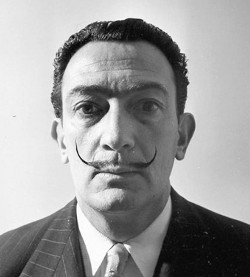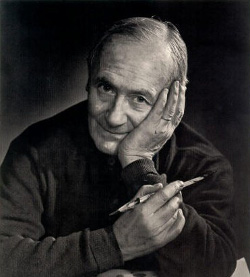Andre Breton Facts
Breton's Gallery
In the 1920s and 1930s, Breton was an active member of the anti-clerical movement, a passionate devotee of the visual and performing arts, and a defender of the French language. He was interested in magic and the supernatural, and was an accomplished magician and prestidigitator. He was also known for his love of trick photography, which he would demonstrate for friends and acquaintances. In 1931, Breton was diagnosed with a duodenal ulcer.
Surrealists Book Results
As an Amazon Associate, I earn from qualifying purchases.
Breton Facts

He and his wife shared a passion for music and the theater, and often attended concerts and performances together. They also shared a love of the visual arts, and were patrons of the avant-garde. In addition to Aragon and Vaché, other close friends and artistic collaborators at this time included Pablo Picasso, Georges Limbour, and Yves Tanguy. They also became close friends with the novelist and playwright André Gide, with whom Breton would later collaborate on the Surrealist novel.
In the apartment, he also held frequent salons, at which he and his friends discussed art, literature, and philosophy. In 1926, the couple's only child, a daughter named Nadine, was born. A year and a half later, Breton's wife developed a potentially fatal case of tuberculosis, which would plague her for the rest of her life. In 1927, Breton's father, mother, and sister came to visit; his mother insisted on staying with them for a few weeks.
The couple had one child, a daughter named Cathy, who died in infancy. In 1925, Breton and his wife moved to Meudon, where he purchased a property on the corner of rue Meudon and avenue de la Grande Armee. The property became home to the surrealists' first museum, the Galerie La Nuit, which was opened on 7 October 1929. The museum, which had been intended as a private space for exhibiting surrealist works, was supported by donations and government grants.
They had two children: Marguerite-Marie-Andrée, known as Margot, who became a writer and art historian, and André-Louis, known as André, who became a psychiatrist and psychoanalyst. The family lived in Paris until the outbreak of World War II. At the time of his marriage, Breton was working as an assistant in the psychiatry department at the Lariboisière Hospital; he was granted a temporary leave of absence to serve in the military. He was honorably discharged on 25 August 1939.



